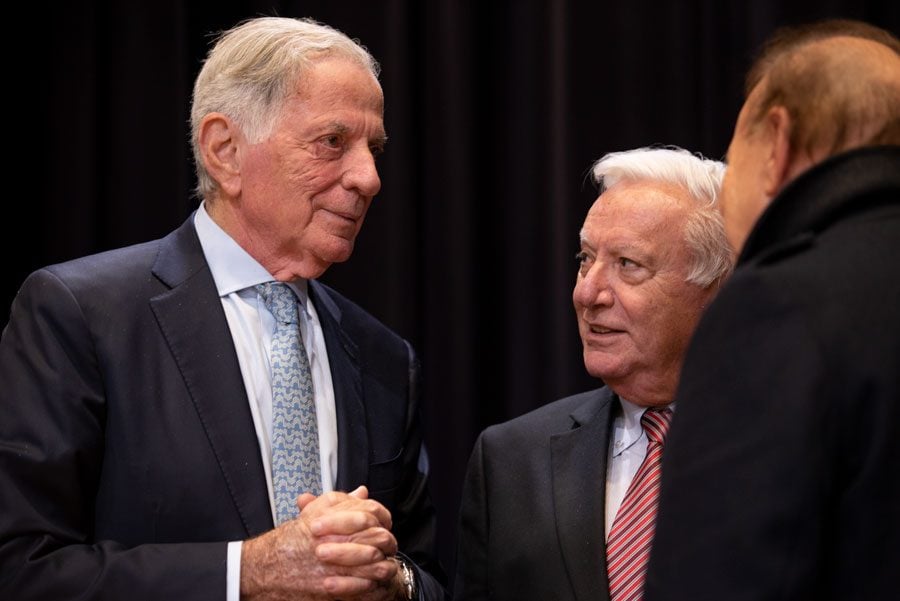Former Israeli Ambassador to U.S. speaks about changing Middle East
Evan Robinson-Johnson/Daily Senior Staffer
Itamar Rabinovich, former Israeli Ambassador to the U.S., answers questions from the audience after his talk. Rabinovich discussed how the power balance in the Middle East is changing.
November 13, 2019
Israel’s former Ambassador to the U.S. Itamar Rabinovich spoke to members of the surrounding Northshore community on campus Tuesday about the complex, changing state of affairs in the Middle East.
Hosted by the Crown Family Center for Jewish and Israel Studies, Rabinovich’s talk, “Israel Facing a New Middle East: Challenges and Responses,” focused on how Turkey, Israel and Iran have become the three major powers in the Middle East, while other nations have struggled to gain footing after the Arab Spring revolutions.
“The Arab world is weak,” Rabinovich said. “The three most powerful countries in the Middle East are not Arab — Iran, Turkey and Israel.”
Rabinovitch said in recent history, Turkey, Iran and Israel have become the major players of the Middle East, while Libya, Sudan and Yemen are “torn,” Syria is in a civil war, and Egypt has returned to a military dictatorship.
Edward Koven (Weinberg ’62, School of Law ’65), an audience member from Highland Park, said he appreciated how Rabinovich made an effort to remain neutral in American politics.
“He went really out of his way not to upset anybody in our government when he talked especially of right and left and trying to appeal to both sides of the aisle,” Koven said.
However, Rabinovich did mention certain eccentricities in Trump’s foreign policy statements, like how Trump “recognized Israeli annexation of the Golan, except that Israel never annexed the Golan,” and how Trump said that the Kurdish people are to blame for not participating in the invasion of Normandy.
In the subsequent Q&A with the audience, however, Rabinovich said he is critical of the Israeli government for siding with Republicans in recent events.
“The current Israeli government went overboard in identifying with one side in American politics,” Rabinovich said. “It always was a maxim of Israeli policy and diplomacy in the United States to keep Israel as a nonpartisan issue in American politics… But being blatantly supportive of President Trump and the Republican Party was a grave mistake on the part of Israel.”
Despite being hosted on the University’s campus, the event included an audience of almost entirely Chicagoland residents. Many attendees came from nearby communities such as Highland Park, and they heard about the event through the center’s event listserv, which includes over 1,000 people.
David Shyovitz, the director of the Crown Family Center for Jewish and Israel Studies said he noticed there weren’t many University students at the event, which he attributed to “the million things they have going on,” and the attendees weren’t hindered by homework and exams.
However, Shyovitz said he still thought the talk was a success.
“It was a really deliberate and methodical look at really complicated issues,” Shyovitz said. “And that’s what we’re supposed to be doing here on campus, right?”


